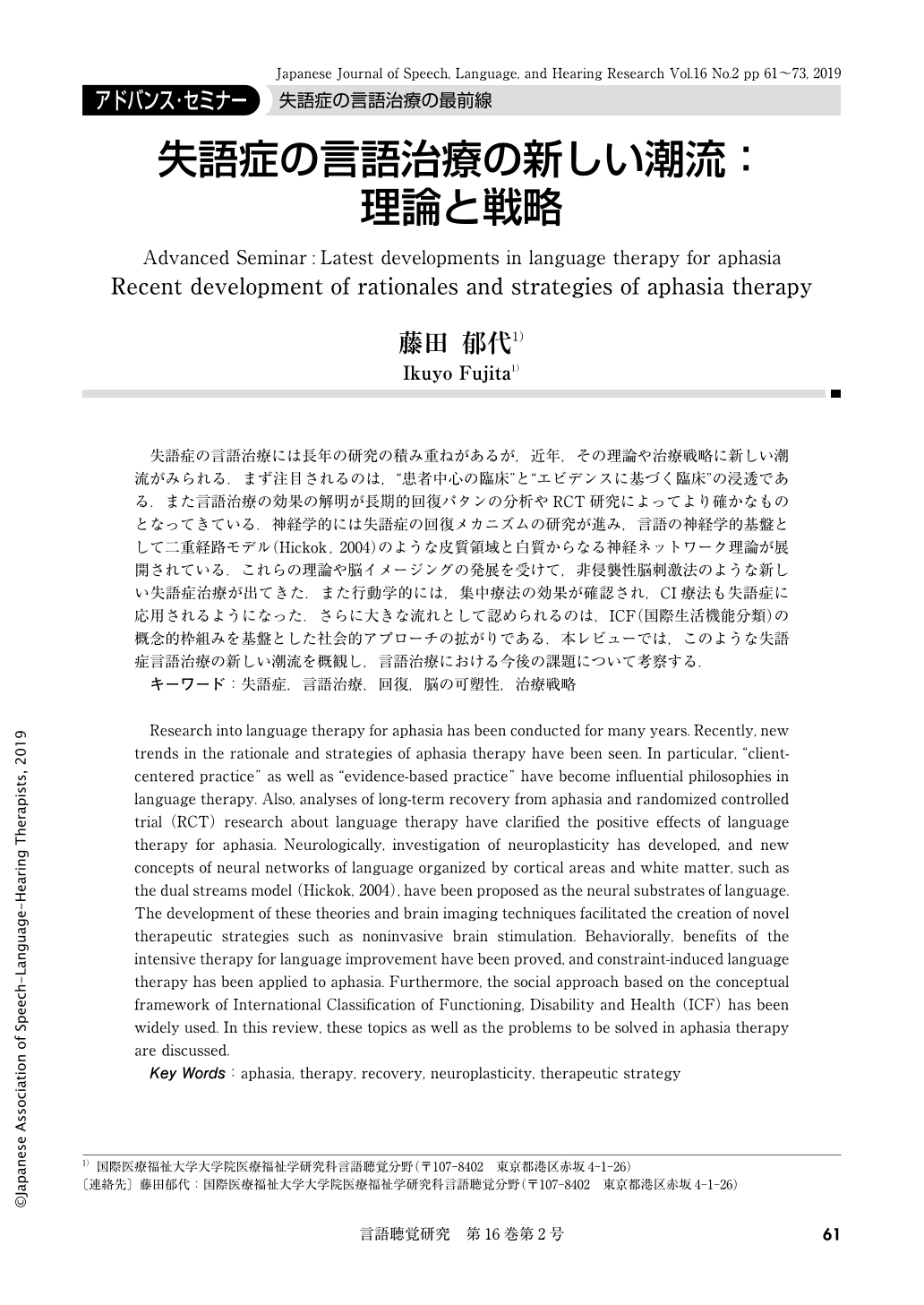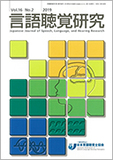Japanese
English
- 有料閲覧
- Abstract 文献概要
- 1ページ目 Look Inside
- 参考文献 Reference
- サイト内被引用 Cited by
失語症の言語治療には長年の研究の積み重ねがあるが,近年,その理論や治療戦略に新しい潮流がみられる.まず注目されるのは,“患者中心の臨床”と“エビデンスに基づく臨床”の浸透である.また言語治療の効果の解明が長期的回復パタンの分析やRCT研究によってより確かなものとなってきている.神経学的には失語症の回復メカニズムの研究が進み,言語の神経学的基盤として二重経路モデル(Hickok, 2004)のような皮質領域と白質からなる神経ネットワーク理論が展開されている.これらの理論や脳イメージングの発展を受けて,非侵襲性脳刺激法のような新しい失語症治療が出てきた.また行動学的には,集中療法の効果が確認され,CI療法も失語症に応用されるようになった.さらに大きな流れとして認められるのは,ICF(国際生活機能分類)の概念的枠組みを基盤とした社会的アプローチの拡がりである.本レビューでは,このような失語症言語治療の新しい潮流を概観し,言語治療における今後の課題について考察する.
Research into language therapy for aphasia has been conducted for many years. Recently, new trends in the rationale and strategies of aphasia therapy have been seen. In particular, "client-centered practice" as well as "evidence-based practice" have become influential philosophies in language therapy. Also, analyses of long-term recovery from aphasia and randomized controlled trial (RCT) research about language therapy have clarified the positive effects of language therapy for aphasia. Neurologically, investigation of neuroplasticity has developed, and new concepts of neural networks of language organized by cortical areas and white matter, such as the dual streams model (Hickok, 2004), have been proposed as the neural substrates of language. The development of these theories and brain imaging techniques facilitated the creation of novel therapeutic strategies such as noninvasive brain stimulation. Behaviorally, benefits of the intensive therapy for language improvement have been proved, and constraint-induced language therapy has been applied to aphasia. Furthermore, the social approach based on the conceptual framework of International Classification of Functioning, Disability and Health (ICF) has been widely used. In this review, these topics as well as the problems to be solved in aphasia therapy are discussed.

Copyright © 2019, Japanese Association of Speech-Language-Hearing Therapists. All rights reserved.


